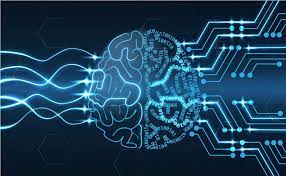Artificial Intelligence - Redefining the Data Engineering
Artificial intelligence, commonly known as AI, is one of the most revolutionary technologies of our time. It involves the creation of intelligent machines that can simulate human intelligence and perform tasks that typically require human-like thinking. AI has been around for decades, but with the rapid advancements in technology, it has become more sophisticated and capable than ever before. In this blog, we will explore the basics of AI, its history, applications, and the ethical considerations around this technology.
What is Artificial Intelligence?
Artificial Intelligence is the simulation of human intelligence processes by machines, especially computer systems. It involves the development of algorithms and software that can enable machines to perform tasks that would typically require human-like thinking. The intelligence of an AI system is measured by its ability to learn, reason, and understand natural language. AI systems can be broadly classified into three categories: supervised learning, unsupervised learning, and reinforcement learning.
History of Artificial Intelligence
The history of AI dates back to the 1940s, when the first electronic computer was built. The development of computers laid the foundation for the creation of AI systems. The first AI system was created in 1956 by John McCarthy, Marvin Minsky, Nathaniel Rochester, and Claude Shannon. They organized the Dartmouth Conference, which is considered the birthplace of AI. In the 1960s and 1970s, AI research was heavily funded by the US government, leading to significant advancements in the field. However, the hype around AI was short-lived, and in the 1980s, AI research funding was cut, leading to what is now known as the "AI winter." In the 1990s, AI research saw a revival with the advent of the internet and the availability of large datasets.
Applications of Artificial Intelligence
Artificial Intelligence has numerous applications across various industries. In healthcare, AI is used for disease diagnosis and drug development. In finance, AI is used for fraud detection and investment prediction. In education, AI is used for personalized learning and student assessment. In manufacturing, AI is used for predictive maintenance and quality control. AI is also used in customer service, transportation, and many other areas.
Benefits of Artificial Intelligence
The benefits of AI are numerous. AI systems can perform tasks more efficiently, accurately, and at a lower cost than humans. They can also process and analyze large amounts of data quickly, which is essential in today's data-driven world. AI systems can be trained to perform tasks that are too dangerous or physically challenging for humans, such as working in hazardous environments. AI can also assist humans in decision-making by providing insights and recommendations based on data analysis.
Challenges of Artificial Intelligence
Despite its numerous benefits, AI also presents significant challenges. One of the most significant challenges is bias in AI systems, which can perpetuate existing social and economic inequalities. AI systems are only as unbiased as the data they are trained on, and if the data is biased, the AI system will be biased too. Another challenge is the potential loss of jobs due to the automation of tasks that were previously done by humans. The ethical implications of AI development and deployment also need to be carefully considered.
Conclusion
Artificial Intelligence is a game-changer technology that has the potential to transform various industries and change the way we live and work. While there are numerous benefits to AI, it also presents significant challenges that need to be addressed. As AI continues to evolve, it is crucial to ensure that it is developed and deployed ethically and in a way that benefits society as a whole.
